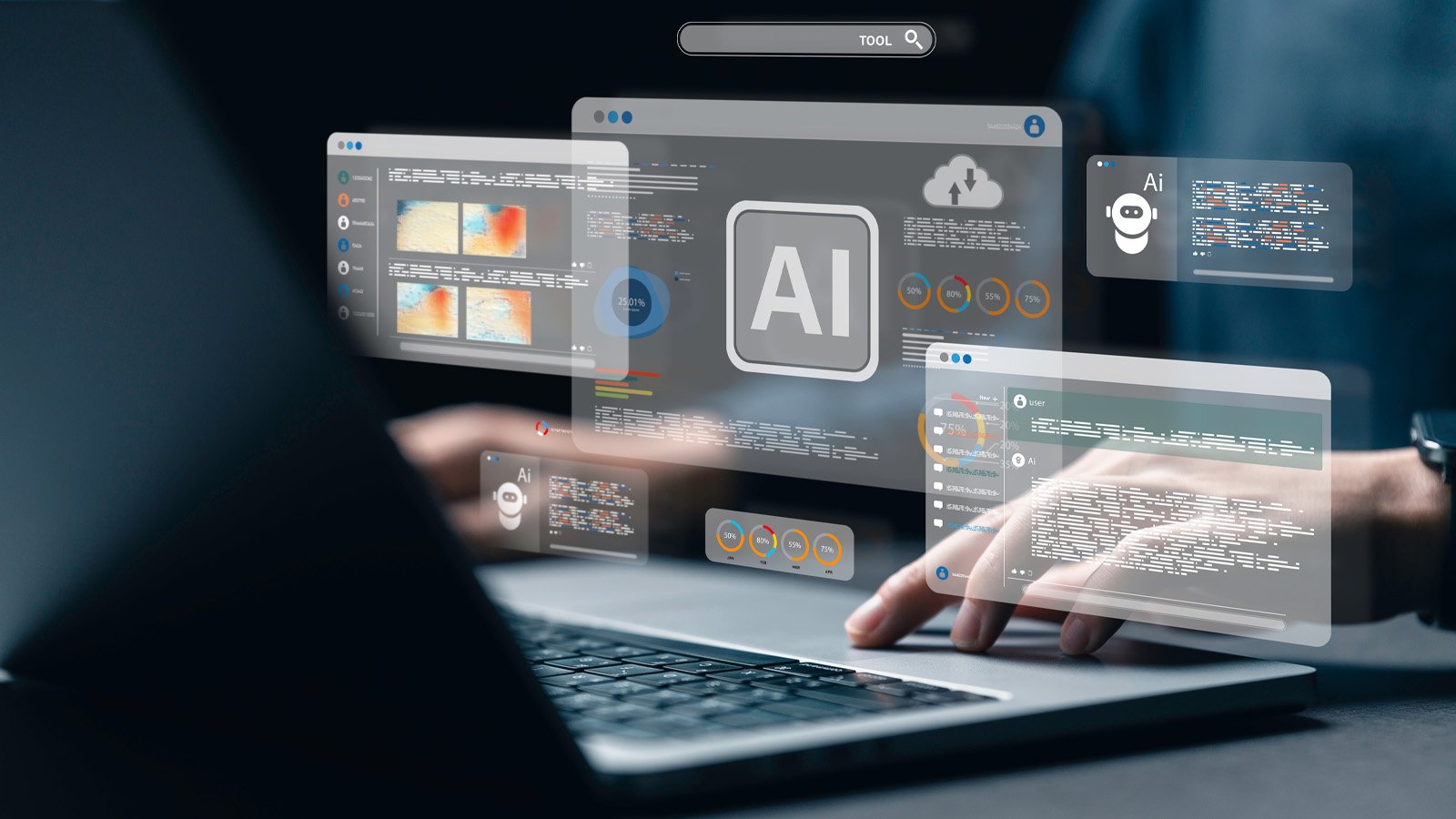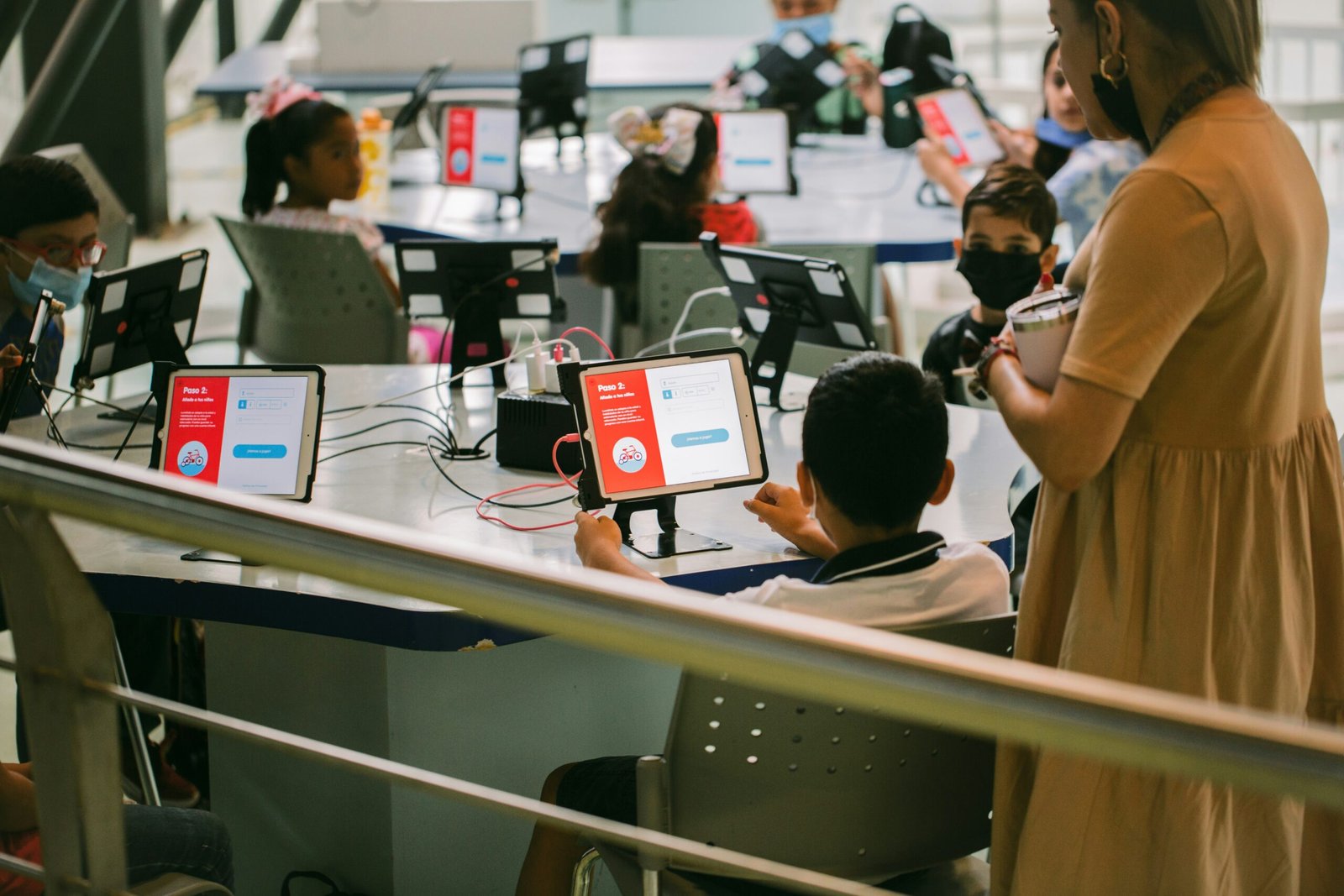Introduction to Adaptive Learning Platforms
Adaptive learning platforms represent a significant advancement in the field of education, designed to create personalized learning experiences for students. These digital systems leverage sophisticated algorithms and data analytics to assess learners’ individual strengths, weaknesses, and preferences. By tailoring educational content to meet these specific needs, adaptive learning platforms aim to enhance student engagement and improve learning outcomes.
The fundamental principle behind adaptive learning lies in its ability to respond dynamically to each learner’s progress. Unlike traditional educational methods, which often adopt a one-size-fits-all approach, adaptive learning platforms continuously collect and analyze student data. This process enables the platform to modify the difficulty, pace, and style of instruction based on real-time feedback, ensuring a more customized educational experience. As a result, students can engage with the material at a level that is appropriate for them, fostering a deeper understanding and retention of knowledge.
The evolution of educational technologies has paved the way for the burgeoning demand for adaptive learning solutions. With the increasing integration of technology in classrooms, educators and institutions are realizing the importance of accommodating diverse learning styles and backgrounds. As a response, there has been a marked shift toward more personalized approaches to teaching and learning. Additionally, advances in artificial intelligence and machine learning further empower adaptive learning platforms, enabling them to offer even greater levels of personalization by predicting learner behavior and adjusting content accordingly.
In summary, adaptive learning platforms are not merely an enhancement to traditional education; they signify a fundamental shift towards a model that prioritizes individual learner needs. As the landscape of education continues to evolve, these platforms play a critical role in shaping the future of personalized learning, providing a framework that accommodates the unique challenges faced by today’s diverse student population.
The Role of AI in Personalizing Learning Experiences
Artificial intelligence (AI) is increasingly recognized for its significant impact on adaptive learning platforms, particularly in personalizing educational experiences. By analyzing vast amounts of student data, AI systems can pinpoint individual strengths, weaknesses, and learning preferences, which fosters a more tailored approach to education. This personalization process not only enhances engagement but also promotes better educational outcomes.
One of the central mechanisms through which AI achieves personalization is through real-time feedback. In traditional learning environments, feedback is often delayed or generalized, making it difficult for students to understand their progress and areas that require improvement. In contrast, AI-driven platforms provide instantaneous feedback on assignments and assessments, enabling learners to adjust their strategies and focus areas in real-time. This timely intervention helps maintain motivation and encourages a growth mindset, ultimately leading to higher academic performance.
Additionally, predictive analytics plays a crucial role in adaptive learning. By utilizing historical data and machine learning algorithms, AI systems can forecast which concepts a student might struggle with in the future. This ability allows educators to proactively address potential learning gaps, ensuring that students receive additional support before they encounter difficulties. Predictive analytics not only empowers students but also equips teachers with valuable insights, enabling them to tailor their instructional methods effectively.
Customizing content delivery is another powerful feature of AI in education. AI algorithms can curate learning materials that are most relevant and beneficial for each individual, adapting the complexity and style of content to suit the learner’s unique needs. This personalized approach extends to multimedia resources, interactive activities, and assessments, ensuring that students remain engaged and connected throughout their learning journey.
Overall, the integration of AI in adaptive learning platforms marks a transformative shift in how personalized educational experiences are delivered, paving the way for improved learning outcomes across diverse student populations.
Benefits of AI-Driven Adaptive Learning
The integration of artificial intelligence (AI) in adaptive learning platforms presents numerous advantages that significantly enhance the educational experience for both students and educators. One of the primary benefits of AI-driven adaptive learning is the ability to increase student engagement. By analyzing individual learning patterns and preferences, adaptive learning systems powered by AI can customize the content and methods used in instruction. This personalized approach not only captures the interest of students but also encourages them to take ownership of their learning journeys, which can lead to a more fruitful educational experience.
Improved retention rates are another significant benefit associated with AI in adaptive learning environments. AI algorithms can identify the specific areas where a student may struggle and present tailored resources to address those gaps. This targeted support fosters a deeper understanding of the material, which in turn helps in retaining information over time. Moreover, when students feel more confident in their learning, they are more likely to engage consistently with the material—leading to overall better academic performance.
From the perspective of educators, AI-driven adaptive learning platforms reduce administrative burdens significantly. By automating repetitive tasks such as grading and progress tracking, educators are afforded more time to focus on instructional strategies and student interactions. Additionally, AI algorithms can offer insightful data analytics that help teachers identify at-risk students. This allows for timely interventions, ensuring that no student falls behind. Overall, the benefits of AI in adaptive learning environments extend far beyond mere technology enhancement; they play a crucial role in fostering a productive, responsive educational ecosystem that promotes success for both learners and educators.
Future Trends and Challenges in AI Adaptive Learning
The landscape of adaptive learning is rapidly evolving, driven by significant advancements in artificial intelligence (AI) and machine learning algorithms. One prominent trend is the enhancement of personalized learning experiences through more sophisticated AI models. These models leverage vast data sets to identify individual learning patterns, thus offering tailored educational interventions that can improve student engagement and outcomes. As a result, educational institutions are increasingly adopting these AI-powered platforms to create a more effective learning environment.
Moreover, the integration of AI with complementary technologies is becoming more prevalent. For instance, the use of augmented reality (AR) and virtual reality (VR) alongside AI can provide immersive learning experiences. Such experiences can cater to diverse learning styles, offering interactive simulations that deepen understanding and retention of knowledge. As these technologies converge, we can expect to see a significant transformation in how education is delivered, making learning more accessible and engaging.
However, the journey toward fully realizing the potential of AI in adaptive learning is not without challenges. Data privacy remains a significant concern, as the collection and analysis of student data can lead to ethical dilemmas regarding consent and security. Educators and institutions must navigate these challenges carefully to protect learner information while leveraging AI technologies. Additionally, the digital divide is another pressing issue that cannot be overlooked. As adaptive learning technologies advance, there is a risk that students from disadvantaged backgrounds may lack access to essential resources, further exacerbating educational inequalities.
Furthermore, it is critical for educators to receive adequate training in utilizing AI tools effectively. A well-informed teaching workforce is essential for maximizing the benefits of adaptive learning platforms. As we look to the future, it will be imperative to address these challenges while harnessing the opportunities presented by AI to create equitable and effective education systems.










